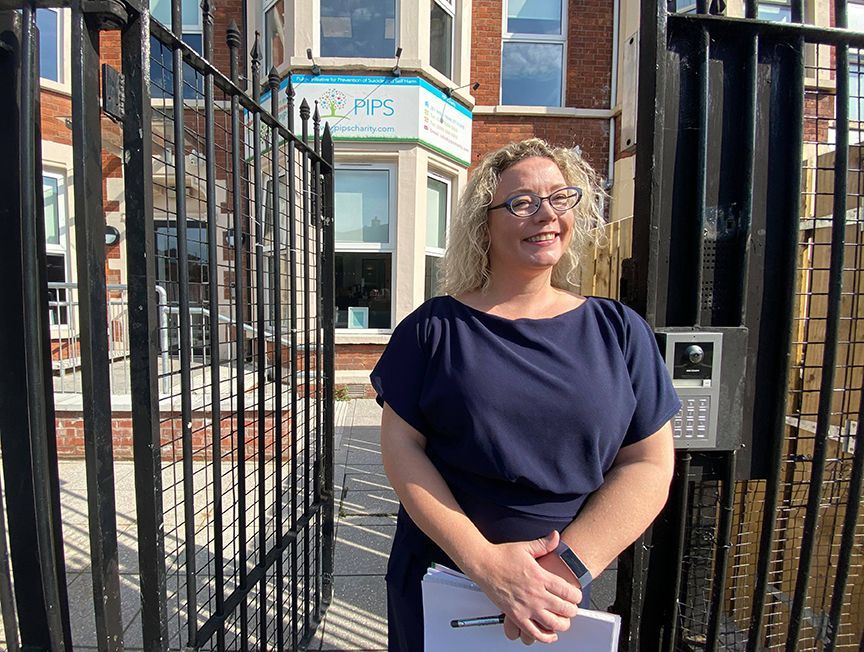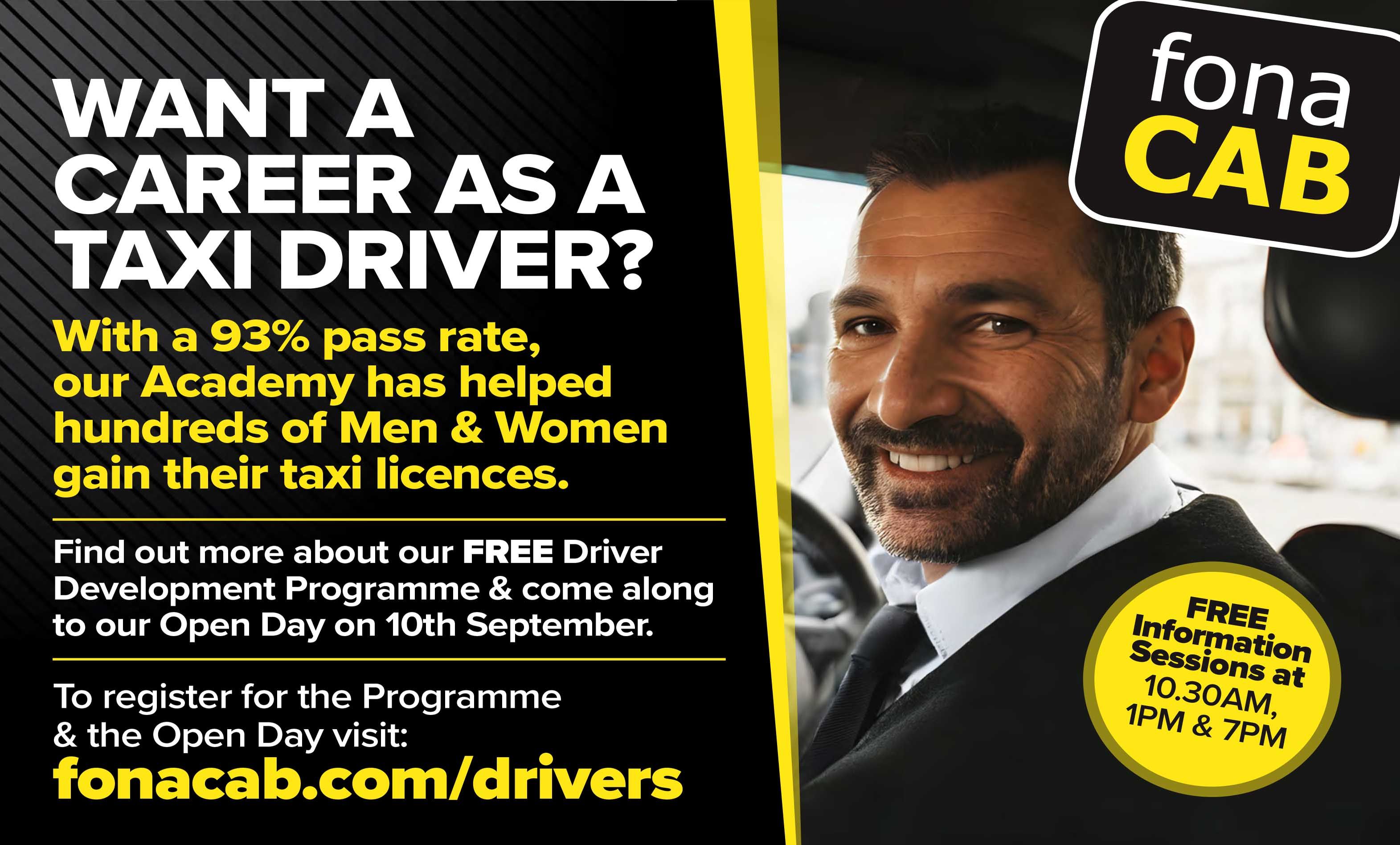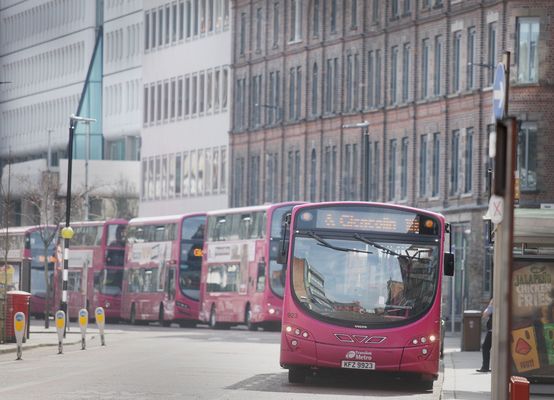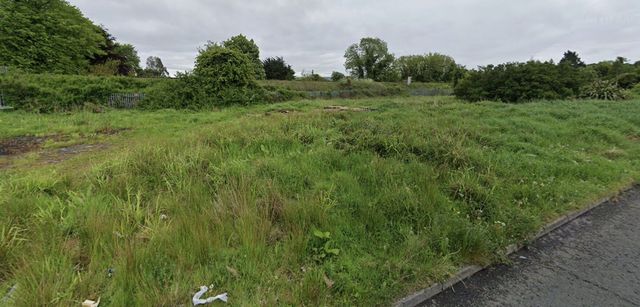WHILST the pandemic and subsequent lockdowns have been necessary for protecting the public from the ravages of the Coronavirus pandemic, they have hidden an ongoing mental health crisis which has only become worse over the past 19 months.
Working on the frontline Renee Quinn, Executive Director of PIPS (Public Initiative for Prevention of Suicide and Self-Harm), has seen at first hand how the pandemic has taken its toll on mental health, and explained how they have been coping over the past two years and how the dedicated team of PIPS volunteers have been working tirelessly to combat a “pandemic of mental health issues coming down the road".
“It’s been a very tough year for us, we have seen the number of cases we’ve been treating rise from almost 6,000 to over 11,000 and we’ve had to ramp up our services very fast in order to cope with the surge in cases. It sounds daunting, but in a way it has been worthwhile because during this extremely difficult time we’ve seen more people being able to reach out to us to get the help they need.”
PIPS operates a walk-in policy from their main location on the Antrim Road, and their mantra is not to turn anyone away, and strive to ensure that everyone is seen, regardless of financial constraints and without endless bureaucratic form-filling.
Today, along with many of NI's leading charities & mental health groups, I am calling for our political parties to commit to fully funding the Mental Health Strategy.
— Siobhán O'Neill (@profsiobhanon) December 15, 2021
This requires a 34% uplift to our budget for mental health. #PlugTheGap https://t.co/L2yrPTLskS
“You can walk through our door and you will be seen by a counsellor on site, you won’t be charged, you don’t have to be referred through your GP or any other referral service. You can just walk in, and we will ensure you get someone to speak with.”
Due to the pressures of the pandemic, PIPS has had to significantly ramp up their services to meet the demand, and now operate with around 90 volunteer counsellors, with face-to-face, one-to-one meetings. They have sessions with people of all ages, ranging from children under 10, to adults over 90.
Renee explained one way in which PIPS has risen to the challenge posed by the increasing number of referrals has been to open two new hubs to help people across the North.
SHOULDER TO LEAN ON FOR YOUNG
“At the start of the pandemic, we had people coming to see us from Derry and Enniskillen, and they were driving all the way to Belfast to get help and we noticed there was a huge increase in people coming from the North-West and South-West looking for services. To combat this we opened up a hub in Derry on 1st June and one in Enniskillen on 12th August to ensure that we can see people who need help closer to where they live, without the inconvenience of a long trip further compounding any distress they may be experiencing.”
The biggest surge in cases has unsurprisingly come from very young people, and PIPS have seen a massive increase in the number of children whom they are treating, who have been struggling with missing school and coping with the anxiety of a world wherein everything that was once normal has been turned on its head. To cope with the increased number of young people seeking help PIPS have placed themselves in order to be able to reach out to children in their own environments, through making use of art and play therapists, and also having a counsellor who works in Ardoyne Youth Club.
Renee said: “There has been a dramatic increase in the number of children seeking help. Many children have spoken with us about their anxiety at missing so much school, and many have been deeply worried about the health of their families.
“We have seen a lot of issues with bereavement also, as children have not been able to go through the traditional burial procedures, or see their loved ones if they have passed away, and a lot are very concerned for their elderly relatives such as grandparents. We have been seeing a lot of children experiencing distress that comes with the more serious side of anxiety disorders, and referrals have been made to us as other children’s mental health charities such as CAMHS (Children and Adolescent Mental Health Services) have also been inundated with cases.”
Thank you to the S4 students at @st_colmans College for the invite to the school recently where they presented PIPS H & S with a powerful donation of £1,600.00🤩
— PIPS Hope & Support (@PIPSHopeSupport) November 24, 2021
Huge well done to the students & entire college for their generosity and support.
Read more; https://t.co/yZnNTKdXWx pic.twitter.com/kCAJm30MGQ
As PIPS does not receive any public funding, they rely on donations from the local community as well as being able to run fundraising events, but this hasn’t been able to happen due to the restrictions in place to cope with the pandemic. In short, this has meant that PIPS has found itself in the increasingly difficult position of having their case load almost doubled, while facing a loss of traditional funding options.
PIPS are not unique in experiencing a loss of funding, it is prevalent in mental health charities, and indeed in all charities across the board due donations drying up as people who normally would give generously, are feeling the economic pinch caused by the ending of the furlough scheme, coupled with rising living costs.
Renee says funding has really been knocked on its head” and expressed how it was tough on the organisation because a lot of people who are in financial distress end up experiencing mental health issues and make use of mental health charities, who will experience an upsurge in cases, but also a loss of funding due to relying on donations from people who are experiencing distress. It becomes the very definition of a vicious circle.
UPSURGE IN DEMAND
As well as experiencing an upsurge in people using their walk-in services, Renee also explained how there had been an increase in large, publicly funded mental health charities and trusts referring patients they couldn’t see to PIPS.
“Over a six month period we received 270 referrals from the Belfast Health and Social Care Trust, as well as from charities such as CAMHS, and that trajectory is only going up, but we are absolutely determined to ensure that we will never turn anyone away. During the first lockdown we did try using phone and Zoom sessions, but this didn’t work for a lot of people, so in June 2020 we resumed face-to-face sessions and extended our opening hours. Due to this, we were inundated with calls from all over the UK, Ireland and the Isle of Man from people seeking help because we were one of the few places who didn’t close down and were offering services.”
Regarding the future of mental health provision and support Renee stresses that the walk-in, free at point of use model used by PIPS is the best model for people seeking help. It means that people in the midst of a crisis do not get knocked back through worrying about paying to talk to someone, or turned away because they reside in a different post code.
Renee extended thanks to all the PIPS volunteers for their work during the pandemic.
“I am so delighted that our team have been working so hard to see so many people, it has been difficult, but I also have absolutely no doubt whatsoever about the fact that PIPS have saved lives over this pandemic.”
Looking ahead to 2022, Renee said: “My wish is that our model can be expanded to other health trusts and charities. We need a root and branch review about how mental health services are delivered and made accessible to people. It is the great silent need in our society.
PIPS BELFAST 028 9080 5850
— PIPS Suicide Prevention (@PipsCharity) December 24, 2021
PIPS DERRY 028 7122 4133
PIPS ENNISKILLEN 028 6633 9004
LIFELINE 0808 808 8000
SAMARITANS 116 123#mentalhealthawareness #mentalhealthmatters #mentalhealthrecovery #mentalhealthsupport #mentalhealthwarrior #mentalhealthadvocate #mentalhealthquotes pic.twitter.com/I58ekOORGv
"The mental health strategy put forward by the Executive is only a strategy until it is acted on and the only thing that will activate it is money and dedication to helping with people’s mental health.”
Christmas and New Year can be hectic with people putting themselves under pressure on many fronts. Renee’s advice is simple.
“I would say to people, please take the pressure off yourselves, financially and emotionally. The most important thing you can give someone is kindness and your time, and this Christmas we should all show our humanity, and reach out to those who may be struggling, or are isolated. It's okay to ask someone the very difficult question of ‘are you feeling suicidal?’ as it can really help break down the stigma around the issue, and get people talking. If you think anyone is in distress, please reach out to them and make sure they know about the support networks which are available.”





